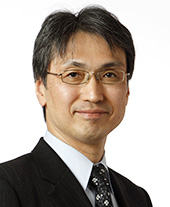- HOME
- Welcome Greeting
2nd Announcement - Greetings
- Outline
- Registration
- Virtual Congress
- JCS Abstracts
- Guidance for Chairs and Speakers
- Call for Abstracts
- Program
- Accepted Regular Abstracts
- Travel Grant
- Guide for the YIA for International Students
- Guide for International YIA (Clinical/Basic)
- Venue & Access
- Links
Welcome Greeting

Hiroshi Ito, M.D., Ph.D., FACC, FESC, FJCS
Congress Chairperson of the 86th Annual Scientific Meeting of the Japanese Circulation Society
(Professor, Department of Cardiovascular Medicine, Okayama University)
Second greeting from the Congress Chairperson January 12, 2022
First of all, I would like to offer my heartfelt respect to all medical professionals for their immense efforts to treat Covid-19 and other patients amid the unexpectedly rapid spread of Covid-19 variants. I sincerely hope that the pandemic will soon be over and life will return to normal.
In my capacity as Congress Chairperson of the 86th Annual Scientific Meeting of the Japanese Circulation Society (JCS 2022) from March 11 to 13, 2022 at the Kobe International Conference Center, Kobe Portopia Hotel and Kobe International Exhibition Hall, which was scheduled to be held face-to-face, I announce with great regret that we have decided to hold the meeting entirely online, in view of the current situation. The Asian Pacific Society of Cardiology Congress 2022 (chaired by Professor Takashi Akasaka), to be held jointly with JCS 2022, will also be held online. This decision is taken to ensure the safety of JCS members and associate members participating in the meeting.
Currently, we are preparing various programs and events to maximize your experience at this special online meeting; the success of JCS 2022 depends on your support. I look forward to your participation in the meeting and sharing a new vision of cardiovascular medicine with the world together.
Welcome Greeting March 29, 2021
The 86th Annual Scientific Meeting of the Japanese Circulation Society (JCS 2022) will be held on March 11–13, 2022 at the Kobe International Conference Center, Kobe Portopia Hotel, and Kobe International Exhibition Hall. This year, the meeting will be held jointly with the Asian Pacific Society of Cardiology (APSC) Congress 2022, which is chaired by Professor Takashi Akasaka of the Department of Cardiovascular Medicine of Wakayama Medical University. This will be first Annual Scientific Meeting to be held following the Covid-19 pandemic, and we intend to hold it mainly onsite, while also making the proceedings available online in a hybrid format.
Much has changed as a result of the Covid-19 pandemic. Holding scientific meetings online has become the mainstream worldwide. The Internet is an excellent method of transmitting information, and as it has the advantages of not being subject to time constraints, not requiring travel, and costing less, this method has become extremely popular.
However, holding scientific meetings onsite expands participants’ networks by giving them the experience of meeting face-to-face and debating each other directly, allowing them to hear words of direct encouragement from their seniors, letting them communicate with distant friends, giving them the opportunity of chatting in corridors, and letting them feel the excitement of speaking in person with researchers doing great work around the world. I am also very much looking forward to networking with Asian researchers as a result of holding this meeting in conjunction with APSC 2022. Covid-19 has renewed our awareness of the importance of person-to-person interactions.
The theme of this Annual Meeting is “Cardiology Spreading its Wings.” The number of patients with heart failure and other cardiovascular diseases is increasing dramatically, and the fields dealt with by cardiovascular medicine are also massively expanding. Chronic kidney disease, diabetes mellitus, chronic obstructive pulmonary disease, malignant tumors, and frailty are just some of the comorbidities involving other departments that are experienced by older patients, and it is now clear that these comorbidities exacerbate heart disease. Adult congenital heart disease and onco-cardiology are among the new areas with which we are required to deal. New genome editing, iPS cells, molecular targeted drugs, big data, artificial intelligence, and novel devices are all among the fields that will bring about major transformations of cardiovascular medicine in future. In addition to plenary sessions and symposia covering these fields, we are planning a program that will also include in-depth debates on issues where opinions differ, sessions providing the latest information on various topics, and meet-the-expert sessions for discussions with experts in different fields, making this Annual Meeting both intellectually satisfying and exciting for participants.
For cardiovascular medicine to be able to cope with this rapidly expanding range of fields, we will have to create new worlds in both healthcare and academia while maintaining the traditions we have inherited. I hope that this Annual Meeting will be an opportunity for members of different cardiology-related professions to attend from all over the world, express their opinions in discussion, and start to sketch out the new future of cardiovascular medicine. Academic meetings are made by their participants. I hope you will consider attending this Annual Meeting in person and adding your voice to the discussion.
Copyright © The 86th Annual Scientific Meeting of the Japanese Circulation Society All Rights Reserved.
